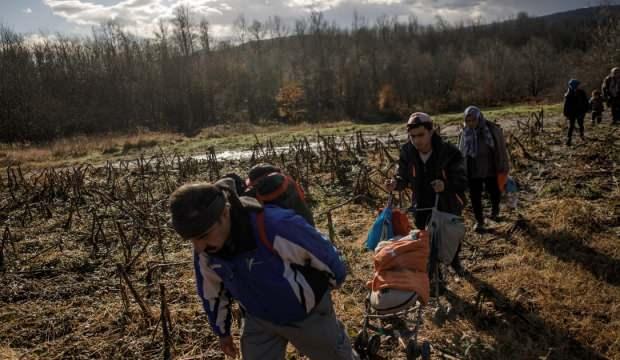A migration expert, associate professor Didem Danış comments on the relationship between political developments in Afghanistan, increasing migration flows and the anti-refugee hostility in Turkey.
Refugees coming from Afghanistan to Turkey are one of the most important topics of discussion in recent days.
Despite the official statements that the flow of Afghan immigrants from the Iranian border to Turkey is under control now, it is emphasised that there may be migration in convoys as the Taliban expands its area of sovereignty.
Some images shared from the cities close to the Turkey’s border also lead to an interpretation as a new wave of irregular migration.
Migration expert Associate Professor Didem Danış, a lecturer in the Department of Sociology at Galatasaray University, talked to Pınar Tarcan from Bianet on the relationship between political developments in Afghanistan and migration, the EU’s migration policies and Turkey’s perspective on refugees.
P.T. As Taliban took over Afghanistan, the issue of migration became a hot topic in Turkey. What are your comments on this issue?
D.D. In recent days, we have seen an increase in the anti-refugee discourse over Afghanistan, especially on social media. One reason for this is the timing of the main opposition leader’s remarks about Syrian refugees.
It caused an existing discomfort to be expressed more freely. Photographs of Afghan refugees coincided with the same time and created an outrage on social media.
First of all, let me say that a large number of immigrants have been coming to Turkey from Afghanistan for a long time. Especially in the summer, the number of people who come by walking and crossing the mountains is increasing.
Contrary to what some say, we do not yet see the effects of the political developments in Afghanistan, the progress of the Taliban. What we see now is a continuation of the ongoing migration of the Afghan people who have been devastated for years.
We will see the effects of the political changes in Afghanistan and the advance of the Taliban in the coming months.
P.T. How do you evaluate Turkey’s position in terms of refugees?
D.D. Despite the fact that we are a polarized and segregated society in many ways, one of the rare issues that the majority of society in Turkey is united is anti-refugee hostility. This appears to be the case in many studies.
One issue that voters of different political parties agree on is the anti-refugee discourse. There are 80 percent among those who support one party, and 70 percent on another party that agree on this.
But when we look at it in total, there is an anti-refugee attitude of over 65 percent. Until today, although there was a disturbance and reaction in the society, these reactions were not reflected in the media as the politicians did not bring this issue to the agenda much.
P.T. How do you evaluate the Austrian Chancellor Kurz’s statements about the refugees from Afghanistan?
Very unfortunate. It created even more reactions at a time when discussions were already intense in Turkey.
I say unfortunate, but on the other hand, it was a statement that clearly showed us the position of Europe. And just before that, Merkel made a similar statement and said that she found Turkey’s handling of refugees very successful, but that she did not see Turkey as an EU member in the near future.
Therefore, the EU is actually very clear about its immigration policies. Their main goals are to control migration, prevent irregular migration and transfer the task of border control to third countries like ours.
In return for these services, it provides financial and other kinds of support. In this sense, the words of the Austrian Chancellor and Merkel show the real attitude of Europe, but they also fuel the reactionary attitude in Turkey and the atmosphere of hatred towards refugees.
P.T. So, what should be done regarding the integration of refugees ?
D.D First of all, it should be emphasized that integration is not a finite process. For example, let’s look at immigrants from Turkey to Germany. This year, we are leaving behind the sixtieth year of this migration, but we still cannot talk about integration fully.
The integration and adaptation process progresses with ups and downs. However, I can easily say that this anti-refugee discourse initiated by opposition politicians does not facilitate integration, on the contrary, it actually makes it difficult.


